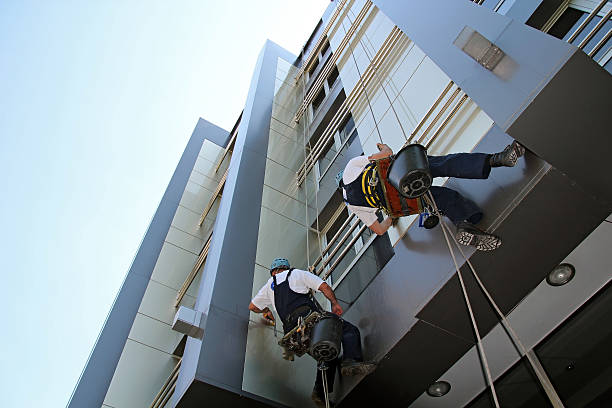Maintaining a building is a multifaceted challenge that extends beyond simple repairs and renovations. Among the many critical aspects of building upkeep, cleaning services play a vital role in ensuring the longevity, functionality, and overall appeal of a property. Here are how cleaning services contribute to building maintenance and why they are indispensable in the property management equation:
1. Preservation of Building Integrity
One of the primary functions of cleaning services is to preserve the structural integrity of a building. Regular cleaning helps prevent the accumulation of dirt, dust, and grime that can lead to deterioration over time. For instance, grime buildup on surfaces can cause corrosion, while dust accumulation can damage electronic systems. By maintaining cleanliness, cleaning services help prevent these issues, ultimately extending the lifespan of building components.
2. Enhancing Aesthetic Appeal
The visual appeal of a building is closely tied to its cleanliness. Regular cleaning ensures that windows sparkle, floors shine, and surfaces are free from stains and marks. This is particularly important for commercial buildings where first impressions can significantly impact client perceptions and business success. Clean environments also contribute to a positive atmosphere, making spaces more welcoming and pleasant for occupants and visitors alike.
3. Health and Hygiene
Cleaning services are crucial for maintaining a healthy indoor environment. Regular cleaning helps reduce the spread of germs, bacteria, and allergens that can cause health issues. For instance, thorough cleaning and disinfection of high-touch surfaces can prevent the spread of illnesses, while regular vacuuming and dusting can reduce allergy triggers. In spaces like offices, schools, and hospitals, this aspect of cleaning is especially important for the well-being of occupants.
4. Operational Efficiency
A clean and well-maintained building supports operational efficiency. In commercial settings, cleanliness can impact employee productivity and morale. For instance, a tidy workspace is conducive to better focus and less stress, while a cluttered environment can be distracting and demotivating. Additionally, routine maintenance and cleaning prevent minor issues from escalating into costly problems, ensuring that systems and facilities operate smoothly.
5. Compliance with Regulations
Various regulations and standards require buildings to maintain specific cleanliness and hygiene levels. For instance, health and safety regulations often mandate regular cleaning of common areas and restrooms in public and commercial buildings. Cleaning services ensure compliance with these regulations, helping property managers avoid fines and legal issues.
6. Cost-Effective Maintenance
Investing in regular cleaning services can be more cost-effective than dealing with the consequences of neglect. Routine cleaning helps catch and address minor issues before they become major problems that require expensive repairs or replacements. This proactive approach can save property managers substantial amounts of money in the long run.
7. Specialized Cleaning Needs
Different types of buildings have unique cleaning requirements. For example, industrial facilities may need specialized cleaning for machinery and production areas, while residential buildings might require meticulous care for carpets and upholstery. Cleaning services offer tailored solutions to meet these specific needs, ensuring that every aspect of the building is appropriately maintained.
The Essential Role of Cleaning Services in Effective Building Maintenance
Cleaning services are more than just a routine task; they are an integral part of effective building maintenance. By preserving structural integrity, enhancing aesthetic appeal, promoting health and hygiene, supporting operational efficiency, ensuring regulatory compliance, and offering specialized cleaning solutions, these services play a crucial role in the overall management of any property. Investing in professional cleaning services is not just about maintaining a building’s appearance but about safeguarding its value and functionality for years to come.



